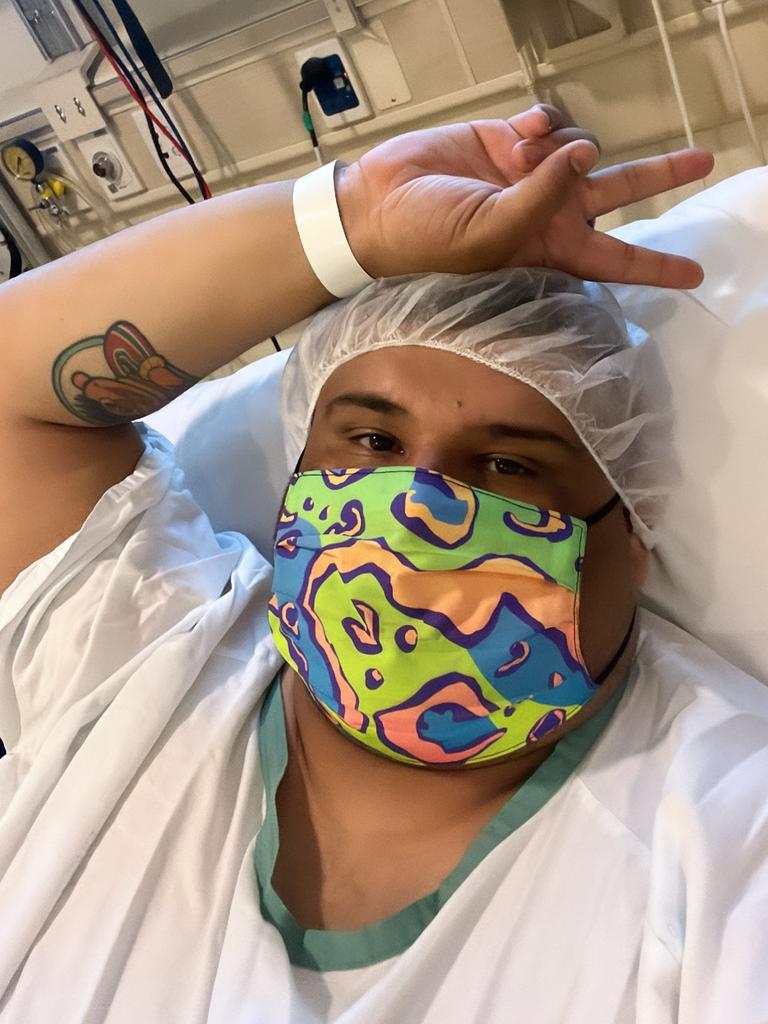Dr Zac Turner on why people are overweight and what they can do
“All you have to do is diet and exercise” is common advice to overweight people but Dr Zac Turner says this isn’t helpful.
Welcome to Ask Doctor Zac, a weekly column from news.com.au. This week, Dr Zac Turner talks about the pros and cons of gastric sleeve surgery.
QUESTION: Hi Dr Zac, Have you been watching Celebrity Apprentice? I’ve fallen in love with Carla from Bankstown. I started following her on Instagram and came across her post where she talked about her journey having gastric-sleeve surgery.
I’m not gonna lie – I’m a big girl, have struggled with my weight since I was very young, and have often thought about this procedure. My mum tells me to don’t even consider it – that it’s a cheat’s way of losing weight and I simply have to eat less food and get off the couch. I hear this from a lot of people – and there doesn’t seem to be many people who openly talk about the procedure. That’s why I’ve loved Carla’s openness about the subject.
I thought I’d ask you, a doctor, to see what you think about surgery as an option to finally lose this weight I’ve been carrying around all my life. I battle with depression, and I know it’s linked to my weight. Please give me the tools so I can persuade my mum. – Hayley, 27, Sydney


ANSWER: Hi Hayley, I applaud you for seeking medical advice, and not simply relying on the opinions of your close friends and family. Whilst it’s great to have such a strong network of people you can rely on for help, there are some things that only your doctor should answer.
Dealing with weight is an awfully troubling situation for many Australians.
Two in three Australians are overweight or obese. Hiding behind that plain and simple statistic, however, is a bundle of emotional baggage and complex behaviours that aren’t so simple to understand.
These days you can’t just say, “You’re fat, all you have to do is diet and exercise.”
Many times overweight or obese people have addictions to food and sugar, and live with damaging habits in their relationship with eating.
And I have to be controversial here: it’s not the overweight person’s fault. Modern diets and junk-foods are laden with sugar and other chemicals which are highly addictive. Studies have shown sugar and these additives set off pathways in the brain, similar to addictive drugs like cocaine.

A gastric-sleeve surgical treatment for obesity is known as a bariatric surgery. It’s an intervention method for people who can’t control their eating habits. The surgery is performed as a keyhole procedure through 4-5 small incisions in the abdomen. From here the surgeon removes a large portion of the “stretchy” part of the stomach. The resulting gastric tube resembles a thin banana of approximately 150mL capacity. Over time, softening of the stomach wall will usually increase the volume to about 250mL. What it does is make the person feel fuller on less food.
After surgery a typical food portion for an obese or overweight person would make you feel extremely unwell and sick.
It sounds like an ‘overnight cure’ but the process of dealing with a gastric-sleeve is actually quite difficult, and typically requires a large amount of willpower to overcome the effects.
I share friends with Carla from Bankstown, and I also love her work. I recognise that my science and facts may not be the best persuasion tool for your endearing mother, so I’ve reached out to Carla to get her personal insight and journey.
The first thing Carla said to me was, “Although the doctors perform surgery on your body, to make the difference, you have to perform surgery on your mind afterwards. It’s definitely not a cheat’s way of losing weight – it’s hard work.”
She explained to me that although you feel fuller on less food, you still have the same habits and cruxes. She still gets upset and craves junk food to feel better, however with the help of the gastric-sleeve surgery, she is retraining how her mind reacts to stress.
Another thing she kept bringing up was that it’s a marathon not a sprint. After surgery, you are on a liquid diet for six weeks, and then you slowly reintroduce solid foods. You also can’t drink liquids 30 minutes before and after you eat, otherwise you’ll feel so full you become ill. Carla expressed she felt really depressed in this period, and it’s because her brain wasn’t getting the release it usually got from binge eating.
She’s on the first steps of her journey, and has already lost 35 kilograms since her procedure in late March. Carla has a way to go with her weight-loss journey, but the surgery has immensely helped reshape her relationship with eating and food.

If you see similarities in your story with Carla’s – I recommend you see your doctor to discuss your options. Gastric-sleeve surgery may be the right fit for you, but I recommend you don’t consider it lightly. Remember it is non reversible. There may be other options for you to consider before this type of surgery. And that could involve also speaking to a nutritionist as well as a psychologist. Remember, Carla only recently started to eat solid foods. She says it will take another six months until she will be able to eat a small entree sized meal without feeling like she has overeaten and feels sick as a result. Understanding this – you need to be ready, both physically and mentally.
And for the sake of cherishing my love for Carla from Bankstown, I’ll finish with this:
Don’t go to gronks for health advice, talk to your doctor bro!
Got a question: askdrzac@conciergedoctors.com.au
Dr Zac Turner has a Bachelor of Medicine and Bachelor of Surgery from the University of Sydney. He is both a medical practitioner and a co-owner of telehealth service, Concierge Doctors. He was also a registered nurse and is also a qualified and experienced biomedical scientist along with being a PhD Candidate in Biomedical Engineering.






